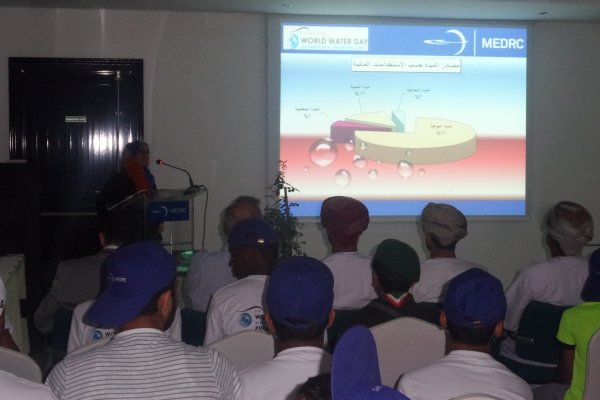
Muscat: Facing a shortage of water resources in the Sultanate, awareness must be raised in order to conserve precious resources and utilise them efficiently for environment friendly and cost effective purposes.
Due to the high cost required to operate desalination plants, as well as the effect they have on the environment, Dr. Mushtaq Ahmed, associate professor at the Department of Soils, Water and Agricultural Engineering at Sultan Qaboos University said a student has proposed a solution to utilise the water that has been excavated during oil pumping operations.
“This project was carried out in a laboratory so we proposed it to be done on a larger scale,” said Ahmed on the sidelines of the Middle East Desalination Research Centre’s (MEDRIC) celebration of the annual U.N. Water: World Water Day awareness campaign.
“What we want ultimately is for the water to be utilised in a sustainable, environmental friendly and economic way; because you can create any water, but it doesn’t help if we spend too much money,” he added.
Currently, the annual water balance of Oman stands at 1.267 million cubic meters, which is a 378 million cubic meter deficit for the 1.645 million cubic meter demand. About 86 per cent of the total share of water is used in agriculture.
One solution is to raise water prices to encourage water conservation. Recently, the Public Authority for Water and Electricity (PAEW) increased the tariff to 3.5 baizas per gallon, a 0.5 baiza increase, for government, commercial and industrial consumption.
“This has always been proposed by people, who are economically oriented, but there is a certain amount of water that should be utilised at a low cost otherwise there will be health problems,” said Ahmed.
“As you see, the petrol prices have increased and when it comes to water, we need to pay market value,” he explained, adding that it is needed in order to balance the relatively high price required to produce water through desalination plants.
Ahmed said the annual increase of 10 to 15 per cent of water is utilised through desalination.
“If it goes on for the next 15 years, we’ll have to build more desalination plants and it won’t be a good thing,” said Ahmed.
Introducing saline soil for farmers could help in conserving fresh water for domestic use as some salt-tolerant plants are able to thrive in salty water, such as tomatoes, barley, sorghum and pearl millet.